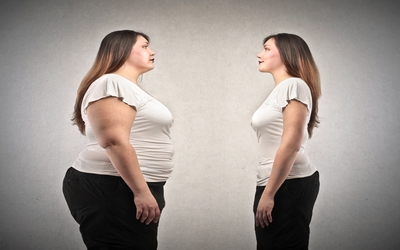Intermittent Dieting: Weight Loss that Breaks All the Rules
Intermittent dieting is a popular weight loss tool these days, but wellness experts are a bit sceptical about just how beneficial this way of losing weight is to your wellbeing. Joanne Chen, author of The Taste of Sweet: Our Complicated Love Affair With Our Favourite Treats, details, ‘As a health writer, I’ve always been smug in my nutrition knowledge—and not shy about sharing it. “You need breakfast,” I’d scold my friends. “Consistency is key!” Admittedly, I was a little patronising. So of course I rolled my eyes a few months ago when my friend Emily, visiting from London, told me about 5:2—aka The Fast Diet—developed by health journalists Michael Mosley and Mimi Spencer. I listened incredulously as Emily described friends shedding weight like crazy by eating what they wanted all week, save for two non-consecutive 500-calorie “fast” days.’
However, the 5:2 isn’t the only intermittent diet around. Many Brits have found themselves turning to another on-off diet known as the two-day diet, which was outlined in a book by dietician Michelle Harvie, PhD, and oncologist Dr. Tony Howell. This diet bans you from eating any carbs apart from fruits and vegetables two days a week. There’s another variation to be published next year, entitled The Every Other Day Diet by Krista Varady, PhD. So the question is; Could yo-yo dieting, fasting, and skipping meals actually work? Intermittent fasting is different than regular dieting, making your metabolism improve with short spurts of feast and famine. Valter Longo, PhD, director of the Longevity Institute at the University of Southern California, explains that this is the way our ancestors had to eat and so returning to this old way of eating can help reverse the modern obesity epidemic.
‘Fasting is hard, though,’ notes Chen. ‘And in some sense, non-fast days are harder. Following the rules outlined in The Fast Diet, I eat yogurt and berries, an arugula salad, and a chicken drumstick on my first fast day. The next day, I stuff my face with cake and mac ‘n’ cheese and feel sick. Apparently, there’s a thin line between yo-yo and intermittent dieting. It’s called control—and I don’t have it.’ Susan Roberts, PhD, professor of psychiatry at Tufts University’s Friedman School of Nutrition Science and Policy, points out that, for this reason, intermittent dieting ‘may not be sustainable.’ However, while those opposed to intermittent dieting argue that it leads to nutrient deficiency, Roberts takes a less critical view: ‘Our bodies are designed to retain vitamins we take in over time, on days we do eat.’
This means that, as long as you pay close attention to nutrition on your “good days,” the bad days won’t be too harmful to your wellness. Chen comments, ‘It’s no wonder, then, that after two weeks of very little good food and a lot of very bad food, I shed no weight. Emily, however, fares better. “Really? You lost nothing?” she asks incredulously on our transatlantic call. By doing 5:2 for a month—eating egg whites, smoked salmon, and “lots of cucumber” on fast days and healthy portions of salads, fruits, and protein on non-fast days—she’s lost about six pounds…While I can’t say I’ve become more alert with this new way of eating, I have become more aware of my food. I’ve acquired a deep appreciation for good coffee. I crave chickpeas as if they are a treat. I’ve also gained some humility, and I’m no longer condescending about diet mantras. It seems—at least for some people, like Emily—so-called healthy rules are best broken.’


Comments are closed.